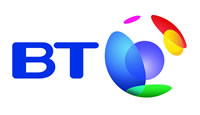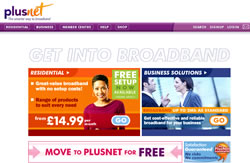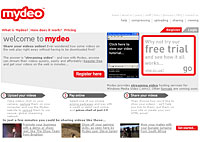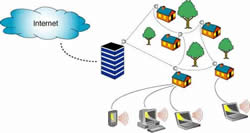 In the week that BT and Sky both saw their triple play offerings potentially trumped by a possible NTL/Virgin ‘quadruple play’, BT chose to release details of its upcoming content deals with BBC Worldwide, Paramount and Warner Music Group.
In the week that BT and Sky both saw their triple play offerings potentially trumped by a possible NTL/Virgin ‘quadruple play’, BT chose to release details of its upcoming content deals with BBC Worldwide, Paramount and Warner Music Group.
Ian Livingston, chief executive of BT Retail, talked up the deals, “Whether you are a music fan, love films or hooked on drama you will get the best in entertainment when you want it. BT is defining next generation TV.”
 Against a backdrop of whispered rumours of delays with Microsoft’s IPTV Edition, the BT service is slated for launch next year.
Against a backdrop of whispered rumours of delays with Microsoft’s IPTV Edition, the BT service is slated for launch next year.
BT’s TV service will piggyback on-demand programming, delivered by a high speed Internet connection to a Philips terrestrial Freeview receiver, and the PVR component of the box will hold 80 hours of downloaded programming.
The service will not be a monthly subscription like that of NTL and Sky, instead it will follow a ‘pay-as-you-go’ model, where individual downloads and viewing can be charged.
An agreement with BBC Worldwide that covers on-demand rights for BBC programming and charges for viewing, will provoke controversy as the BBC is paid for by a universal levy on TV viewers in the UK.
![]() Problems won’t be confined to BBC programmes if ITV programming is carried, advertisers are bound to be unhappy that time-shifting viewers will skip the paid for messages.
Problems won’t be confined to BBC programmes if ITV programming is carried, advertisers are bound to be unhappy that time-shifting viewers will skip the paid for messages.
You might be able to tell that we’re not that excited about this deal. At least BT seems to recognise that viewers watch content rather than technology … or well negotiated deals.
With so many digital TV homes in the UK subscribed to Sky or cable, we’re just not sure if BT will be able to muscle into the Digital TV space.
A major question mark hanging over them is whether the content promised so far is enough to encourage current subscribers to switch or, even more difficult, if they can get the so called “digital refuseniks” to join BT’s TV.
 California based telecoms company, SureWest Communications, is set to become the first company in the USA to offer HDTV commercially over its Internet Protocol (IP)-based fibre-to-the-premise (FTTP) network.
California based telecoms company, SureWest Communications, is set to become the first company in the USA to offer HDTV commercially over its Internet Protocol (IP)-based fibre-to-the-premise (FTTP) network. “Through our HDTV channel lineup and launch of HDTV over IP, we are showcasing our dedication to providing customers with the highest-quality programming, sharpest picture available and a variety of emerging video products,” he added.
“Through our HDTV channel lineup and launch of HDTV over IP, we are showcasing our dedication to providing customers with the highest-quality programming, sharpest picture available and a variety of emerging video products,” he added. On HDNet, SureWest viewers can, err, thrill to original series like “HDNet World Report,” “Face 2 Face with Roy Firestone” and “HDNet Concert Series,” and if that lot doesn’t set you packing your bags for Sacramento, there’ll also be showing Warner’s “Smallville” series and a load of live sports productions include Major League Soccer games.
On HDNet, SureWest viewers can, err, thrill to original series like “HDNet World Report,” “Face 2 Face with Roy Firestone” and “HDNet Concert Series,” and if that lot doesn’t set you packing your bags for Sacramento, there’ll also be showing Warner’s “Smallville” series and a load of live sports productions include Major League Soccer games. NTL is currently in talks to merge with Virgin Mobile in a deal that would create a potential rival to the now
NTL is currently in talks to merge with Virgin Mobile in a deal that would create a potential rival to the now  In a fiercely competitive market, cable companies on both sides of the Atlantic are looking to outflank their satellite and phone company rivals by adding mobile phone services to their portfolio of voice, Internet and TV services.
In a fiercely competitive market, cable companies on both sides of the Atlantic are looking to outflank their satellite and phone company rivals by adding mobile phone services to their portfolio of voice, Internet and TV services. NTL and Telewest have notched up around 5 million subscribers combined, next to BSkyB’s 7.8 million digital television viewers.
NTL and Telewest have notched up around 5 million subscribers combined, next to BSkyB’s 7.8 million digital television viewers. BT have been enjoying government payouts to maintain their networks.
BT have been enjoying government payouts to maintain their networks. Broadband adoption in the UK may soon be reaching its peak, according to a new report from Datamonitor.
Broadband adoption in the UK may soon be reaching its peak, according to a new report from Datamonitor. Although we’re nearly broadbanded out in Europe, the report sees excellent opportunities for growth in less mature markets.
Although we’re nearly broadbanded out in Europe, the report sees excellent opportunities for growth in less mature markets. MetroNet, UK broadband ISP, has been purchased by PlusNet in an all cash deal for £1.7m.
MetroNet, UK broadband ISP, has been purchased by PlusNet in an all cash deal for £1.7m. MetroNet has grown since their start in 2003 to 16,000 subscribers, turning over £2.1m bringing an operating profit of £40,000 in the year ended 31 March 2005. They have net cash of over
MetroNet has grown since their start in 2003 to 16,000 subscribers, turning over £2.1m bringing an operating profit of £40,000 in the year ended 31 March 2005. They have net cash of over  We, and we assume other MetroNet subscribers, hope that the high quality of service that we’ve received from them continues, without interruption, in the transition to PlusNet.
We, and we assume other MetroNet subscribers, hope that the high quality of service that we’ve received from them continues, without interruption, in the transition to PlusNet. Mydeo, the UK consumer video streaming company, has teamed up with UK ISP Tiscali to offer streaming video sharing services to broadband users of the UK Tiscali Website.
Mydeo, the UK consumer video streaming company, has teamed up with UK ISP Tiscali to offer streaming video sharing services to broadband users of the UK Tiscali Website. Members will be able to stream their cinematic masterpieces on a pay-as-you-go basis, and will only have to shell out when they choose to upload a video. Users can pay in Euros, UK Pounds or US Dollars.
Members will be able to stream their cinematic masterpieces on a pay-as-you-go basis, and will only have to shell out when they choose to upload a video. Users can pay in Euros, UK Pounds or US Dollars. “Mydeo is really easy to use and offers lots of help and support for our members who may be putting video on the Web for the first time,” Hole insisted.
“Mydeo is really easy to use and offers lots of help and support for our members who may be putting video on the Web for the first time,” Hole insisted. For a long time, Cisco was only focused on high-end corporate sales. This started to change with its acquisition spree. Back In June 2003 it acquired Linksysin order to attack the home and small business markets.
For a long time, Cisco was only focused on high-end corporate sales. This started to change with its acquisition spree. Back In June 2003 it acquired Linksysin order to attack the home and small business markets. DSL is much cheaper to install as it uses existing phone cabling, ratherthan CATV which requires digging up the road, installing fibre tothe street and co-axial cable to the home (this may not be true forgreenfield sites, but in countries with existing infrastructure likethe UK it is).
DSL is much cheaper to install as it uses existing phone cabling, ratherthan CATV which requires digging up the road, installing fibre tothe street and co-axial cable to the home (this may not be true forgreenfield sites, but in countries with existing infrastructure likethe UK it is). Though Cisco have bought Scientific Atlanta, who manufacture the consumerpiece of the puzzle, by expanding the consumer take-up of IPTV they arealso expanding the core network business. Don’t forget, running IPTV servicesrequires a lot of investment in network infrastructure i.e. moreCisco kit.
Though Cisco have bought Scientific Atlanta, who manufacture the consumerpiece of the puzzle, by expanding the consumer take-up of IPTV they arealso expanding the core network business. Don’t forget, running IPTV servicesrequires a lot of investment in network infrastructure i.e. moreCisco kit. Mesh Networks are going to grow enormously by the end of the decade, according to ABI research. This ‘revalation’ is following years technical-types raving on about them.
Mesh Networks are going to grow enormously by the end of the decade, according to ABI research. This ‘revalation’ is following years technical-types raving on about them.